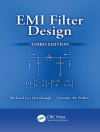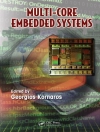For over 60 years, scientists and engineers have been trying to crack a seemingly intractable problem: how to build practical devices that exploit nuclear fusion. Access to electricity has facilitated a standard of living that was previously unimaginable, but as the world’s population grows and developing nations increasingly reap the benefits of electrification, we face a serious global problem: burning fossil fuels currently produces about eighty percent of the world’s energy, but it produces a greenhouse effect that traps outgoing infrared radiation and warms the planet, risking dire environmental consequences unless we reduce our fossil fuel consumption to near zero in the coming decades.
Nuclear fusion, the energy-producing process in the sun and stars, could provide the answer: if it can be successfully harnessed here on Earth, it will produce electricity with near-zero CO2 byproduct by using the nuclei in water as its main fuel. The principles behind fusion are understood, but the technology is far from being fully realized, and governments, universities, and venture capitalists are pumping vast amounts of money into many ideas, some highly speculative, that could lead to functioning fusion reactors.
This book puts all of these attempts together in one place, providing clear explanations for readers who are interested in new energy technologies, including those with no formal training in science or engineering. For each of the many approaches to fusion, the reader will learn who pioneered the approach, how the concept works in plain English, how experimental tests were engineered, the future prospects, and comparison with other approaches. From long-established fusion technologies to emerging and exotic methods, the reader will learn all about the idea that could eventually constitute the single greatest engineering advance in human history.
Inhaltsverzeichnis
1. Introduction: Fusion Basics.- 2. Exciting Fusion Developments.- 3. Pinches.- 4. Mirrors.- 5. Cusps.- 6. Tokamaks & Stellarators.- 7. Field Reversed Configuration.- 8. Inertial Electrostatic Confinement.- 9. Ion Beams.- 10. Plasma Cannons.- 11. Inertial Confinement Fusion.- 12. Liquid Metal.- 13. Conclusion: Achieving a Fusion-Powered Future.
Über den Autor
Dr. Matthew (Matt) Moynihan has been keenly interested in nuclear fusion since he first took physics in high school. For the past fifteen years he has been working to build the broader fusion community and to explain the value of fusion as a green energy source to everyday citizens. He has been the host of a popular fusion podcast, written a fusion blog, and his work has appeared in Forbes, CNBC, Bloomberg News, The Boston Globe, and IEEE Spectrum. He holds a bachelor’s degree in engineering from the University at Buffalo and a doctorate focused on fusion from the University of Rochester. Currently working as a consultant on fusion, he was previously a senior nuclear engineer for the United States Navy, studying the safety of nuclear submarines and aircraft carriers. He lives in Fairport NY with his wife, Alison, and his son, Peter.
Alfred B. Bortz has lived in or near Pittsburgh PA all his life, with the exceptionof a four-year interlude early in his working career. He earned his Ph.D. in Physics from Carnegie Mellon University in 1971 and spent the next 25 years working in academic and industrial physics and engineering groups. Since then, he has forged a second career as Dr. Fred Bortz, an author of more than thirty science books for young readers. His most significant research publication, ‚A New Algorithm for Monte Carlo Simulation of Ising Spin Systems‘ (with M. H. Kalos and J. L. Lebowitz) published in the Journal of Computational Physics in 1975, is often described as seminal and is still frequently cited in research journals after nearly five decades. His best known books for young readers are Catastrophe! Great Engineering Failure—and Success (a selector’s choice on the 1996 National Science Teachers Association list of Outstanding Science Books for Children), Meltdown! The Nuclear Disaster in Japan and Our Energy Future (a 2012 Junior Library Guild Selection), and Techno-Matter: The Materials Behind the Marvels, which won the 2002 American Institute of Physics Science Writing Award for works intended for young readers. He and his wife, Susan, are the proud parents of a science educator and a librarian and grandparents of three young adults.












